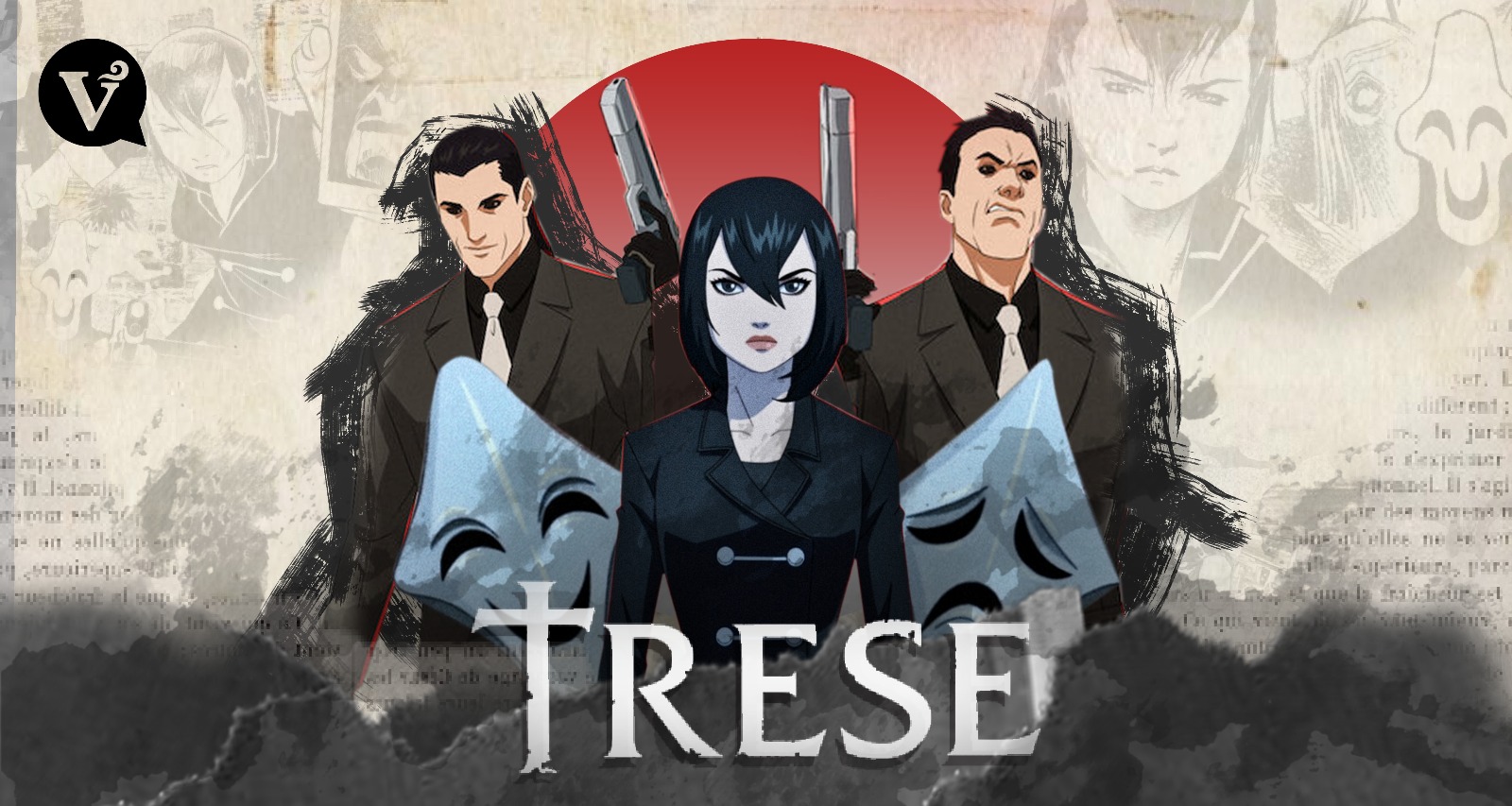
Remember that story of the ghostly “white lady” that allegedly haunts Balete Drive in Quezon City? Or how you’re supposed to announce “tabi-tabi po” so as to not disturb the spirits living in the woods? These are some well-known examples of Philippine myths brought to life in “Trese,” an anime-inspired horror crime series on Netflix.
Adapted from writer Budjette Tan and artist Kajo Baldisimo’s comic series of the same name, Trese follows titular protagonist Alexandra Trese (voiced by Liza Soberano and Shay Mitchell in the Filipino and English dubs, respectively) who through her connection to the occult helps the police in solving cases of supernatural origin in the city of Manila.
The show, produced by Filipino-American director and artist Jay Oliva, generated a ton of buzz since its announcement back in October 2020 and the weeks leading up to its premiere. It’s also thanks to clever marketing, which has “vandalized” billboards and taken over the ABS-CBN building.
LOOK: The facade of ABS-CBN’s ELJ Building glows in red and flashes “Trese” in a promotion of the Netflix anime series. “ABC-ZNN,” a TV station in the series, is also installed atop the building. #TreseOnNetflix
George Calvelo, ABS-CBN News
More: https://t.co/lvRyidQ2D6 pic.twitter.com/tMoY45pkMc
— ABS-CBN News (@ABSCBNNews) June 11, 2021
But what makes Trese ultimately satisfying and appealing, especially to the mainstream, is its ability to weave the rich world of Philippine mythology into contemporary society.
Through the course of six episodes, we see how these mythical beings affect, or disrupt for the most part, the everyday lives of Filipinos.
One such character is Bagyon Lektro, who can control the atmosphere as head of what seems to be a parody of the country’s biggest electric distribution company.
There are tikbalang (half-man, half-horse creature) with CEO ranks, aswang (shapeshifters) crime lords, and a nuno (dwarf) who can let you in on the latest rumors for the price of a Choc Nut bar.
On top of that, the series also tackles relevant socio-political themes despite the story being written more than a decade ago and in a subtle manner that allows for post-viewing discussions.
Alexandra Trese encounters shady politicians and cunning traffickers and exposes their crimes. We also see a glimpse of a crumbling detention system and abusive law enforcement, mirroring some aspects of reality.
Indeed, while the show caters to comic book and folklore fanatics, these subjects and themes add a layer of depth and elevate the show’s status among other anime or comic book series.
That said, some aspects of the series could be improved, especially if renewed for another season.
The voice cast, for one, is average and at times betrays the actors’ lack of experience with voice dubbing. Much of the clamor online calls for the hiring of actual or more adept voice actors to give variety in the delivery of dialogue.
Some plot points and characters also feel rushed and underdeveloped, which is probably due to constraints on the season length. The writers could have reworked the source material better to fit the television format.
Nevertheless, the adaptation is still a triumph. Backed by rich folklore, sharp writing, and a genuine awareness of Filipino culture, Trese is an enthralling and excellent addition to the Philippine animation and television scene.

0 Comments